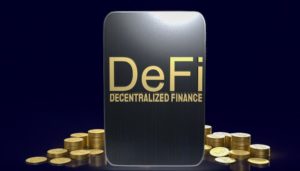Table of Contents
As the digital era unfolds, the way we understand and manage finances has been undergoing an unprecedented transformation. At the forefront of this revolution is blockchain technology.
No longer just the backbone of cryptocurrencies, blockchain promises to redefine the essence of financial systems, making them more transparent, efficient, and decentralised. This innovative technology presents both challenges and opportunities.
As we delve deeper into the realm of blockchain, we aim to uncover its various facets and how it stands to reshape the world of finance as we know it.
How Blockchain Technology is Changing the Game?
Introduction to Blockchain: A Brief Overview
Originating as the technology underpinning Bitcoin in 2009, blockchain’s brilliance lies in its simplicity: a time-stamped series of immutable records, or ‘blocks’, that are managed by clusters of computers, not owned by any single entity. Each block is secured and connected to the previous one using cryptographic principles, creating a chain.

This structure inherently guarantees data integrity and offers protection against malicious attacks. Unlike centralised databases, where a singular entity has control, blockchain’s decentralised nature ensures that information is transparently accessible to all participants, yet remains tamper-proof.
Decentralised Ledgers: Beyond the Traditional Banking System
The traditional banking system, with its centralised ledgers and intermediaries, has long been critiqued for its inefficiencies and vulnerabilities to fraud. Enter blockchain. With its decentralised ledger technology (DLT), blockchain negates the need for intermediaries like banks to validate transactions.
Instead, consensus mechanisms within the network achieve validation, streamlining processes and reducing transaction times significantly. More than just speed, DLT offers a layer of transparency previously unheard of. Every transaction is recorded openly, yet securely, ensuring all parties can trace and verify them without compromising on privacy.
The Rise of Decentralised Finance (DeFi): Bridging Traditional and Modern Financial Systems
Decentralised Finance, commonly known as DeFi, is an innovative financial architecture that operates outside the traditional banking framework. Built on blockchain, DeFi platforms aim to recreate and improve upon conventional financial instruments. Instead of centralised institutions, DeFi leverages smart contracts on public blockchains, notably Ethereum, to create protocols that replicate existing financial services in a more open, interoperable, and transparent manner.

This ensures direct peer-to-peer transactions without the need for intermediaries, leading to faster processes and reduced costs. With over $40 billion locked in DeFi protocols as of early 2021, it’s evident that DeFi isn’t just a fleeting trend; it’s laying the groundwork for a new financial epoch.
Smart Contracts: Revolutionising Transactional Agreements
For those who follow Bitcoin news, the world of digital currencies is ever-evolving. Just browsing through Bitcoin news today, we see that beyond the typical cryptocurrency discussions, the topic of smart contracts frequently surfaces. These self-executing contracts have terms of the agreement written directly into lines of code. They operate on a ‘if-this-then-that’ logic, ensuring that once conditions are met, actions are executed automatically. No intermediaries, no delays, just seamless transactions.
Bitcoinist and many other platforms frequently highlight the importance of smart contracts, particularly in sectors like real estate, insurance, and even entertainment. With transparent terms and reduced risks of manipulation or breach, these contracts could very well be the future of most digital agreements.
Enhancing Supply Chain Management: Tracking Goods Transparently
Blockchain isn’t just about money. One of its most promising applications lies in enhancing supply chain management. Imagine buying a product and having the capability to trace its journey from raw material extraction to your hands. With blockchain, this becomes possible. Every step of a product’s lifecycle can be recorded on an immutable, transparent ledger. This level of visibility can significantly reduce fraud, counterfeiting, and even improve safety standards. Companies can prove the authenticity of their goods, and consumers can make informed choices, knowing the origin and journey of their purchases.
Blockchain’s Role in Identity Verification: Secure Personal Data Management
In an era of rising cyber threats and concerns about data breaches, ensuring one’s identity remains sacrosanct is paramount. Here, blockchain presents a profound solution. Traditionally, our personal data is stored in centralised servers, becoming vulnerable to hacking and misuse. But imagine a system where your identity isn’t stored as a whole but fragmented across a decentralised network. Blockchain facilitates this.

By leveraging its immutable and transparent nature, users can control who sees their information and when. Identity verification on blockchain allows for a more secure, tamper-proof system, wherein details, once verified, are encoded into a blockchain, accessible only through cryptographic keys. This doesn’t just enhance security but can also expedite verification processes in sectors like banking, property rental, and online services, signalling a transformative shift in how we manage and verify personal data.
Future Projections: Where is Blockchain Headed in the Next Decade?
As we cast our eyes to the horizon, the potential trajectories for blockchain technology appear boundless. The next decade holds immense promise. While its early years were synonymous with cryptocurrencies, blockchain’s future seems vastly more diversified. Experts predict significant adoption in public services — from transparent voting systems to real-time tax collections. The healthcare sector might witness comprehensive patient databases, ensuring swift and secure sharing of medical records.
In finance, beyond just DeFi, we could see entire banking systems migrating to blockchain structures for optimised efficiency and security. Additionally, as Artificial Intelligence and the Internet of Things gain traction, integrating blockchain could bring about a synergy of technologies, making our interconnected world more secure and accountable.
Author Profile

- Guest Blogger & Outreach Expert - Interested in Writing Blogs, Articles in Business Niche | News Journalist By Profession in the United Kingdom
Latest entries
 LawJanuary 9, 2026Emily Windsor On The Judgment Calls Barristers Make Daily
LawJanuary 9, 2026Emily Windsor On The Judgment Calls Barristers Make Daily TravelJanuary 7, 2026Key Considerations When Installing Temporary Barriers for Roadworks
TravelJanuary 7, 2026Key Considerations When Installing Temporary Barriers for Roadworks BusinessNovember 21, 2025A Practical Guide to Using LMS Platforms for Better Onboarding
BusinessNovember 21, 2025A Practical Guide to Using LMS Platforms for Better Onboarding EducationNovember 17, 2025Choosing the Right AI Course for Your Child: A Parent’s Guide
EducationNovember 17, 2025Choosing the Right AI Course for Your Child: A Parent’s Guide




